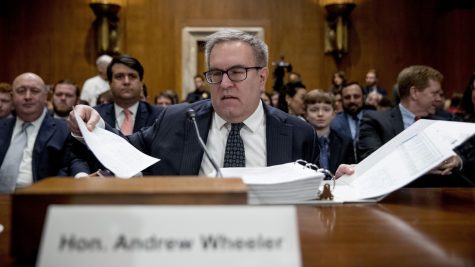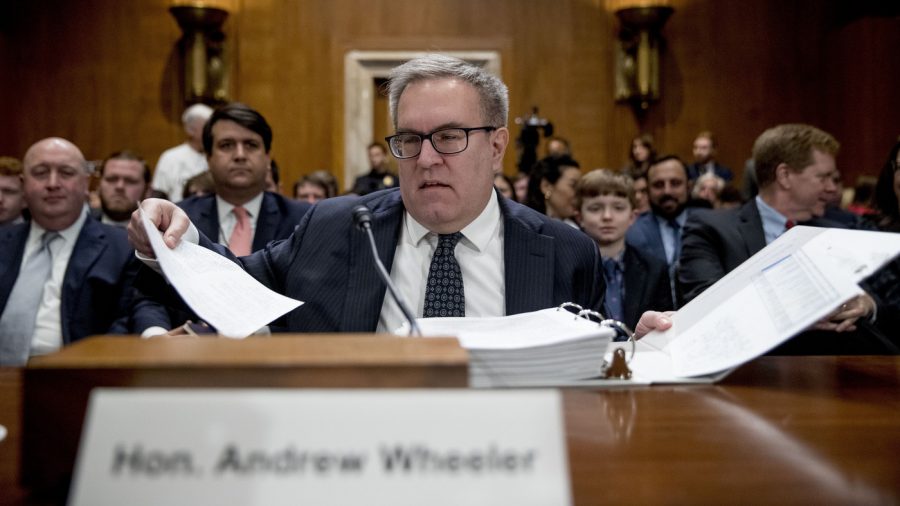No, The Pandemic Response Isn’t a Guide to Beating Climate Change.
Andrew Wheeler arrives Wednesday to testify at a Senate Environment and Public Works Committee hearing to be the administrator of the Environmental Protection Agency.
April 19, 2020
In spite of all the panic and hysteria caused at the hands of the Covid-19 pandemic, individuals around the world search on end for silver linings. Popular headlines float around speaking of once-absent species of animals returning to their habitats, the Venetian canals finding clearer waters, or air qualities rising back to liveable levels for the first time in years. At a glance, it is easy to observe these positive changes and come to the conclusion the world has accidentally stumbled into the proper way to tackle the unfathomable beast that is climate change. While there is no question that these shifts in our natural environment are in fact improvements, it would be a gross misunderstanding to interpret our new behaviors to be our savior in the face of a climate crisis.
Now without even touching on the matter of feasibility — which is to say how impossible it would be to continue current lifestyles for the foreseeable future — fighting climate change by shutting down the average individual’s world is giving a pass to the greater perpetrators. Energy firms; from household names like Chevron, BP, and Shell to state-owned companies like Saudi Aramco, these titans of industry have been responsible for an incomprehensibly disproportionate amount of carbon emissions for decades. According to the Guardian, since 1965, the top 20 energy companies have “contributed to 35% of all energy-related carbon dioxide and methane worldwide, totalling 480bn tonnes of carbon dioxide equivalent”. Not only is it unproductive, but it is downright degrading for the people of the world to suffer in their livelihood and general quality of life in preservation of the planet, while industrial giants — who bear exponentially greater blame — continue business as usual.
This doesn’t go to say that making an effort on one’s own to help the environment should be discouraged at all; each and every bit counts. That being said, if every person tries their best to recycle their soda cans and pick up garbage on their morning walks, and yet citizens and their governments allow these non-renewable energy companies to continue to profit hand-over-fist on their own waste, then we’re simply sweeping the deck of a sinking ship.

Andrew Wheeler arrives Wednesday to testify at a Senate Environment and Public Works Committee hearing to be the administrator of the Environmental Protection Agency.
Our current conditions are something the world has never seen before, and it will all likely become stranger yet before there is an end in sight, but it is crucially important to never forget where accountability should lie. In this context, it is so much more than a blame game. It is a moment in history where a precedent can be set that either stops this level of neglect from ever being neared again, or one that assures that a crippled world will simply turn the other cheek.


